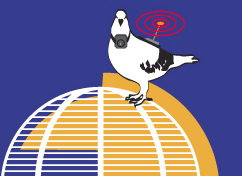Joline Blais & Jon Ippolito
Visitor
|
Networks//Hierarchies - 2006/05/26 06:27
Ned,
Your abstract hints at several anxieties surrounding the coming of age of network culture. Having read some of your related thoughts published elsewhere, we wonder if you could elaborate on the following problems you identify with "organized networks":
* As you note, the current intellectual property climate impedes universities from making the leap to genuine networks. Do you think open licensed works (GPL / Creative Commons / Open Courseware) offer educators a route around this obstacle? Or are more drastic solutions necessary (Freenet and The Pool come to mind)?
* Elsewhere you have argued that the horizontality of networks is overstated, and that "hierarchies are essential to networks." Yet many local paradigms--mesh networks and indigenous communities, for example--don't depend on DNS, alpha males, and other hierarchies to function. Certainly, if you broaden your definition of hierarchy to include any ordered system like atomic structure or binary code, then Morpheus and the Maori both depend on them. But doesn't such an overly broad definition neglect the political discrimination inherent to hierarchies, which is really what's important about them?
* One could argue that local networks, however pure, cannot scale to sustainable global communities. You correctly note that "There have not been so many instances of the kind of networks like nettime, fibreculture, ephemera, iDC, etc collaborating with each other". However, models of such glocal collaboration exist. You might want to look at the 2003 Distributed Creativity forum, which linked together disparate email communities in five different time zones. Participants in the forum could contribute via their local email lists or via an online interface built by Still Water and Eyebeam. (You can find an archive here.)
* Finally, habits of mind are hard to break. Broadcast media & representative politics train us in hiererchical behaviors regardless of content, students are trained to respect hierarchies as they enter kindergarten, and by the time we see them, they are mixing network behaviors (trading music & media over napster clones) with hierarchical learning styles (just tell me what I have to do to get an "A"). In your own abstract, you mention that "establishing mechanisms that DISTRIBUTE educational resources common to networks is of CENTRAL importance." Our very metaphors echo a hierarchical mindset. Some say this is just a human trait, but I have many examples from my work among Wabanaki peoples locally, that such a mindset is far from universal. In your work, do you notice particular habits of mind that benefit/detract from establishing "organised networks"? And/or do you find the persistence of hierarchy just an atavistic remnant reinforced by current power/finance elites?
Cheers,
Joline & Jon
|
